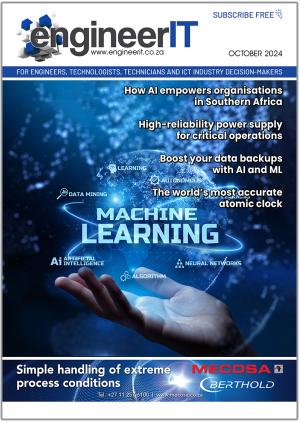Innovative technologies, including blockchain, artificial intelligence (AI), drones and more, will continue to pave the way for growth within the local agricultural sector, while playing a critical role in helping to alleviate global challenges such as food security and wastage.
This was the central theme at the fifth Agri Indaba, hosted by Datacentrix recently in Limpopo. In his welcoming address, Ahmed Mahomed, Datacentrix CEO said that the South African agricultural sector has shown a remarkable performance, despite inhibiting factors such as load shedding, rising inflation and the global economic slowdown, providing food to 60.6 million citizens (and several million other residents) as well as to every country within Africa, with the exception of the Cape Verde Islands and Eritrea.
“South African agriculture exported $12.8 billion in agricultural products last year, roughly half of its annual produce, and we believe that this can be even better supported by smart, data-driven farms and their improved efficiencies. This type of environment could potentially encompass solutions such as data management, AI, machine learning (ML), internet-based solutions, mobile technologies, drone-based applications and automation.”
AI to play a key role in ending world hunger

2023 has been another year of extreme jeopardy for those struggling to feed their families said ‘human-centred AI advocate’ and thought leader, Johan Steyn, who explained during his Agri Indaba keynote address that, according to data from the World Food Programme, 783 million people worldwide are uncertain of where their next meal is coming from.
“The global community must not fail on its promise to help end world hunger and malnutrition by 2023,” he stated, adding that technological agriculture could be a game changer for Africa, as well as for the rest of the developing world.
“It is interesting to note that some of the most prominent voices on AI and technology have not been technologists, but historians and philosophers. Israeli author and historian Yuval Noah Harari, for instance, has said that the world is facing three existential problems: nuclear war, ecological disaster, and AI,” added Steyn. “However, for the agriculture sector, AI could help to improve malnourishment and hunger in the world. This could range from precision farming, where data from drones, satellites and ground sensors can be used for better predictions, reduced waste and improved crop yields; earlier detection of pests or crop disease; the use of AI-equipped machinery for faster planting and harvesting; and the streamlining of the agricultural supply chain to speed up produce reaching the market, thereby limiting food wastage.
But AI doesn’t come without its challenges.
Steyn suggested that, for industry to retain control over AI, both the regulatory environment and AI skills challenges need to be overcome. There are no regulations that govern AI in Africa, or globally for that matter; and the lack of technical skills and expertise is fuelled by skills migration that is prominent in South Africa specifically.
Furthermore, in order to prevent costly mistakes, he advises local agri-businesses to leverage the power of AI through critical partnerships with companies like Datacentrix, where past learnings and experiences contribute to stronger IP, rather than attempting to go the AI journey alone.
“It’s important that agri-businesses embark on their AI journeys by looking at business problems, and focusing on financial returns and business longevity. Here, the modern agri-business leader needs to find the balance between human and technology collaboration by establishing a human strategy that is supported by AI and other technological interventions.
Blockchain bolsters broken food chain

Dr Tebogo Sethibe, Group Executive at the Agricultural Research Council (ARC), added blockchain technology to the Agri Indaba discussion, saying that, from a food security point of view, this type of solution is already being successfully used to rectify broken food chain challenges such as contamination and consumer demand for greater transparency within the food industry.
“Blockchain has the ability to hold the history of food items through the entire supply chain; from farm to fork. Its end-to-end traceability means that all players in the chain have access to the same information at the same time, helping to save time, decrease cost, reduce risk and also increase trust.”
In conclusion, Steyn commented that “technology can revolutionise business, but we must not lose sight of why we are doing this. It is to ensure a sustainable future for our children, with the promise of nourishment and prosperity, by using technology responsibly.”
The Datacentrix Agri Indaba 2023 was supported by the participating technology partners, including Platinum Partner, Veritas, and Gold Partners eNetworks, Fortinet (Exclusive Networks), Hewlett Packard Enterprise (HPE), HPE Aruba, ManageEngine (ITR Technology), and VMware.















